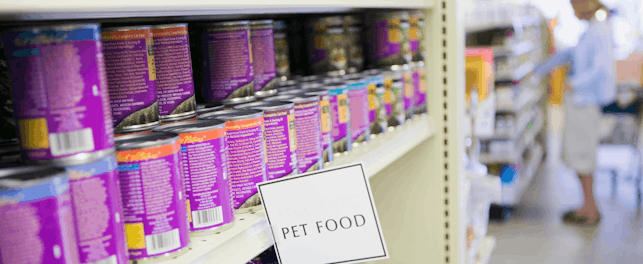The U.S. Food and Drug Administration (FDA) has published a proposed rule to mandate additional traceability recordkeeping requirements for some food products. We look at the potential effects of this change.
Signed into law on January 4, 2011 by President Obama, the Food Safety Modernization Act (FSMA) was a response to the many incidents of foodborne illnesses reported in the U.S. during the first decade of the 2000s. It gave the U.S. FDA a variety of new powers, including the ability to order mandatory recalls.
On September 23, 2020, the U.S. FDA issued a proposed rule that, if accepted, would establish new regulatory requirements for those who manufacture, process, pack or hold foods that are on the Food Traceability List (FTL) to keep additional traceability records. These must be maintained in addition to existing regulatory requirements and will contain Key Data Elements (KDEs) associated with the different Critical Tracking Events (CTEs).1
Food Traceability List
The FTL contains foods that have been identified as being prone to microbiological and chemical hazards by the U.S. FDA. The decision to list products is based on seven criteria:
- Frequency of outbreaks and occurrences of illnesses
- Severity of illnesses
- Likelihood of contamination
- The potential for pathogen growth, with consideration of shelf life
- Manufacturing process contamination probability and industry-wide intervention
- Consumption rate and amount consumed
- Cost of illness2
Foods included on the FTL currently include soft cheeses, eggs, nut butters, cucumbers, fresh herbs, leafy greens, melons, peppers, sprouts, tomatoes, tropical fruits, fresh fruits and vegetables, finfish (including smoked finfish), crustaceans, mollusks and bivalves, and ready-to-eat deli salads.
Businesses that process, manufacture, pack or hold these items must establish and maintain records associated with growing, receiving, transforming, creating and shipping.3 Although the proposed regulation calls for maintaining records as either original paper records, electronic records or true copies, the ultimate aim of the proposal however, is to enhance traceability and transparency across the supply chain. Therefore, FDA encourages the industry’s adoption of these requirements also for non-listed foods and the utilization of technology for better efficiency in the traceability of finished foods and ingredients from farm to retail.
Potential Impact
Frank Yiannas, Deputy Commissioner for Food Policy and Response at the U.S. FDA, has stated that the aim of the proposal is to, “create a first-of-its-kind, standardized approach to traceability recordkeeping, paving the way for industry to adopt and leverage more digital, tech-enabled traceability systems both in the near term and the future.”4
The proposed rule makes it the responsibility of operators in the supply chain to develop plans and procedures to stop contaminated food from reaching consumers. In effect, it creates a proactive rather than reactive approach to preventing foodborne illnesses.5
Inevitably food operators will incur the addition costs of implementing and maintaining these new recordkeeping procedures but, in the long term, they could also bring substantial cost savings. It is estimated the new requirements could mean the sources of foodborne illness are identified 84% quicker, which would result in significant reductions in the number of costly recalls for the industry.6
As mentioned, while these proposals only apply to foods listed on the FTL, the U.S. FDA is encouraging the voluntary adoption of these practices across the whole industry. The rule was conceived with this intention and, as Deputy Commissioner Yiannas has acknowledged, it paves the way for the whole industry to “adopt and leverage more digital, tech-enabled traceability system,” that will reduce the incidences of foodborne illness.7
SGS Solutions
SGS offers a comprehensive range of services to help food operators comply with the requirements of the FSMA. These include facility certification to help operators conform to either FDA’s Accredited Third-Party Program (VQIP) Certification or FSMA Foreign Supplier Verification Program (FSVP) Certification, gap assessments, technical support, and training. In addition, SGS Transparency-One helps operatives in the global food supply chain ensure their products are safe and conform to relevant product safety rules and regulations.
For more information, please contact:
Hank Karayan
SGS Global FSMA Program Director
t: +1 (514) 402 5810
References
1 FSMA Proposed Rule for Food Traceability
2 Food Traceability List
3 FDA proposed rule establishes ‘Food Traceability List’
4 FDA proposes new FSMA rule for food traceability
5 FDA proposes detailed traceability standards for food likely to be contaminated
6 FDA proposes detailed traceability standards for food likely to be contaminated
7 FDA proposes new FSMA rule for food traceability
Al-Jbeiha, Yajouz Street, Caracas Building, Entrance No1, 3rd Floor, Office 311,
11193,
Amman, Jordan



